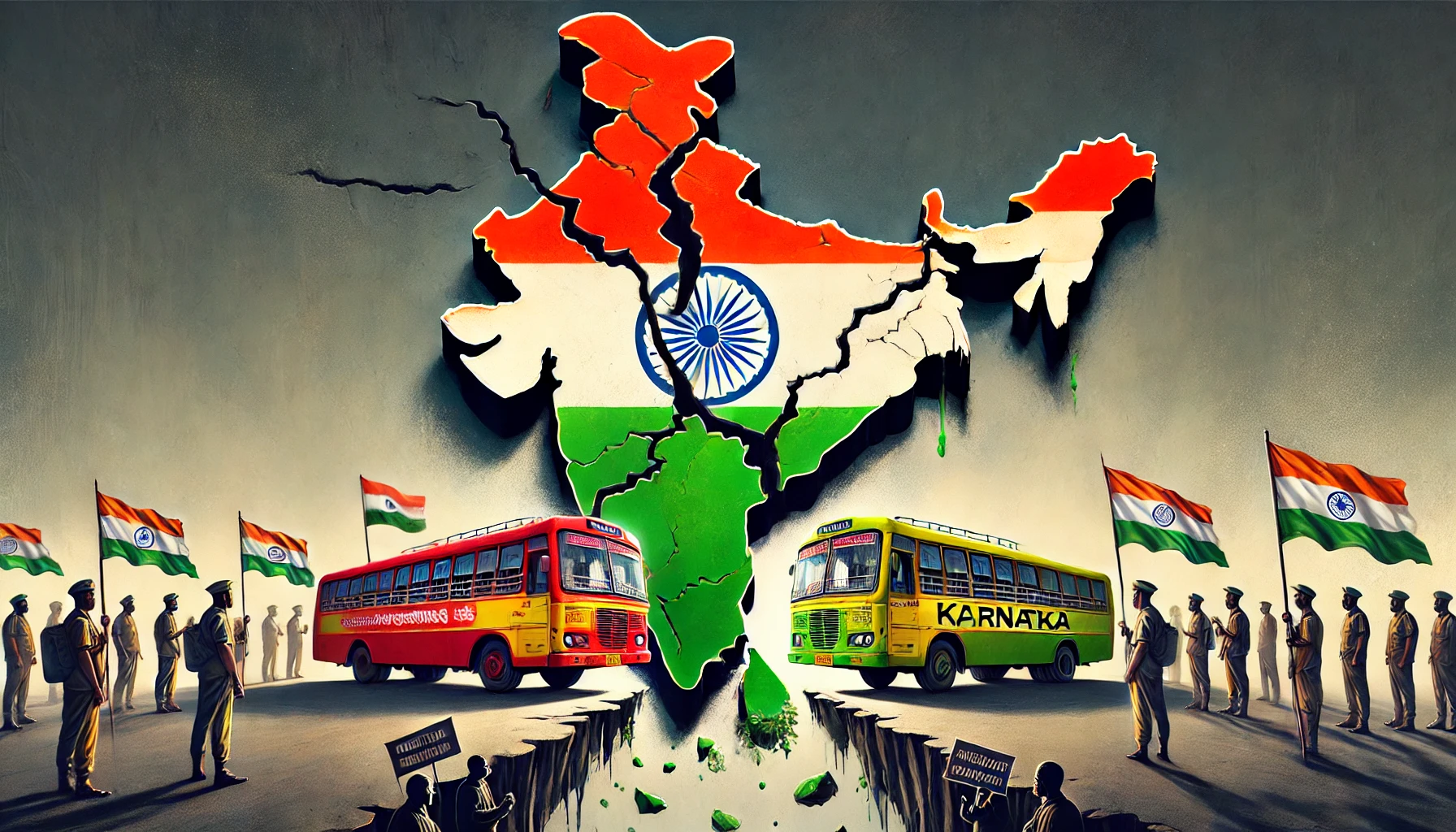The Maharashtra-Karnataka border dispute has its origins in the States Reorganisation Act of 1956, which reorganized Indian states based on linguistic demographics. Maharashtra has long claimed that 865 villages, including Belagavi (formerly Belgaum), Nipani, and Karwar, should be merged into Maharashtra due to their Marathi-speaking majority. Karnataka, however, has consistently opposed this claim, arguing that these regions are an integral part of its territory.
To address the dispute, the central government formed the Mahajan Commission in 1966. The commission recommended that 247 villages be transferred to Karnataka and 264 villages to Maharashtra. However, Maharashtra rejected these recommendations, leaving the issue unresolved.
Villages Involved in the Maharashtra-Karnataka Border Dispute
Maharashtra claims 865 villages, including Belagavi, Karwar, Nippani, Khanapur, and Haliyal, among others, citing their Marathi-speaking majority. Below are some key villages involved in the dispute:
Major Disputed Villages & Areas:
- Belagavi district: Belagavi (Belgaum), Nippani, Khanapur, Kittur, Kagwad, Chikkodi
- Uttara Kannada district: Karwar, Haliyal, Supa, Joida
- Bidar district: Bhalki, Aurad
- Dharwad district: Nargund, Navalgund
- Gadag district: Gajendragad, Lakshmeshwar
- Kalaburagi district: Aland, Chincholi
These villages have a significant Marathi-speaking population, and Maharashtra has been pushing for their merger, while Karnataka asserts that they are an integral part of its territory.
Also Read: Discover 8 Awesome Waterfalls in Karnataka
Border Dispute vs. Language Dispute: Are They the Same?
The Maharashtra-Karnataka issue involves both a border dispute and a language dispute, but they are distinct:
1. Border Dispute
- A territorial conflict where Maharashtra claims Belagavi and surrounding areas based on historical and cultural ties.
- Karnataka maintains that these areas are an integral part of its state.
2. Language Dispute
- Maharashtra argues that Marathi-speaking areas in Karnataka should be merged into Maharashtra.
- Karnataka asserts that Kannada is the official language of these regions and refuses to cede control.
Thus, while the primary dispute is over territory, the underlying factor is language, making it a complex issue blending both territorial and linguistic claims.
Recent Incidents Leading to Suspension of Bus Services
The ongoing dispute has led to periodic violent incidents and retaliatory actions. The latest controversy erupted after assaults on bus conductors from both states.
1. Assault on Karnataka Bus Conductor
- Date: February 21, 2025
- Location: Marihal, Belagavi
- Incident: A Karnataka State Road Transport Corporation (KSRTC) bus conductor was allegedly assaulted after a disagreement with a Marathi-speaking woman passenger. The conductor was accused of misconduct, and four individuals were arrested.
2. Retaliatory Attacks in Maharashtra
- A Maharashtra State Road Transport Corporation (MSRTC) bus driver was attacked in Karnataka’s Chitradurga district, with assailants blackening his face.
- A KSRTC bus was vandalized in Maharashtra, with slogans like “Jay Maharashtra” painted on it.
- Shiv Sena (UBT) members attacked a North Western Karnataka Road Transport Corporation (NWKRTC) bus driver in Solapur, smearing saffron color on his face.
Impact of the Conflict: Suspension of Bus Services
Due to these incidents, both states decided to halt government-run bus services.
Maharashtra’s Response
- Transport Minister Pratap Sarnaik condemned the attacks and announced the suspension of MSRTC bus services from Maharashtra’s Kolhapur division to Karnataka.
- The Maharashtra government considered deploying security personnel on buses traveling to Karnataka.
Karnataka’s Response
- Karnataka initially restricted bus operations to Maharashtra but later suspended all KSRTC buses after the February 24 attack.
- Transport Minister Ramalinga Reddy urged the Maharashtra government to take strict action against those responsible for damaging Karnataka’s buses.
Impact on Commuters
The suspension has affected thousands of daily commuters who travel between the two states for work and education.
- MSRTC operated around 600 trips daily, carrying over 10,000 passengers.
- KSRTC also ran hundreds of services, all of which are now halted.
- Private buses continue to operate but are more expensive and less reliable.
Broader Language Dispute in India
This dispute reflects larger language-based tensions in India:
- Hindi vs. Regional Languages: Tamil Nadu has historically opposed Hindi imposition and promotes Tamil as the primary language.
- Quebec’s French vs. English (Canada): Quebec enforces strict laws favoring French to protect its identity.
- Ukraine’s Russian vs. Ukrainian Debate: Ukraine has passed laws restricting Russian language usage, leading to regional tensions.
Conclusion
The Maharashtra-Karnataka dispute, rooted in linguistic and territorial disagreements, has escalated due to recent attacks on bus personnel, resulting in the suspension of transportation services. This highlights how unresolved language disputes can impact everyday life, requiring diplomatic dialogue and legal resolutions to ensure peace and safety for citizens in both states.








